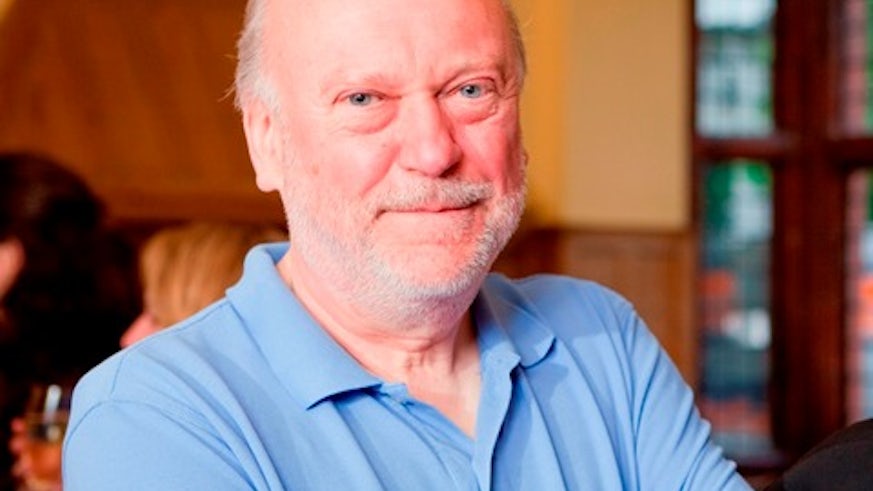Journalists pay tribute to lecturer who launched more than 1,000 careers
26 February 2024

Big names in journalism have paid tribute to David English, the former newspaper writer who helped establish the reputation for excellence of Cardiff University’s School of Journalism, Media and Culture.
The 74-year-old, who has died after a long period of ill health, had a unique career in university journalism education. By 2015, when he retired as head of the School’s newspaper journalism course and deputy director of the Cardiff University Centre for Journalism, he had, over 35 years, launched more than 1,000 young journalists into the profession.
Cardiff University colleague and former Editor-in-Chief of ITN Professor Richard Tait said: “He helped make Cardiff what its founder Tom Hopkinson had always hoped it would become - the best place in the country to learn to be a journalist.”
His students included Ian Macgregor of the Sunday Telegraph, Kevin Maguire of the Daily Mirror as well as leading broadcasters such as the BBC’s Richard Sambrook (who then went on to work with him at Cardiff University), and ITV’s Libby Wiener.
Head of the School of Journalism, Media and Culture Dr Matt Walsh said: “David’s contribution to journalism is huge. Both his rigour and his kindness left a lasting impression on the students he taught and this has been reflected in the many tributes from leading journalists since his death. The School of Journalism, Media and Culture owes him a huge debt of gratitude for his work over many decades.”
David graduated from Oxford and initially worked on Thomson regional newspapers such as the Belfast Telegraph and the Journal in Newcastle. But he found his vocation in journalism training and education, working first for Thomson Editorial Training Centre in Cardiff and then for the University’s Centre for Journalism, now the School of Journalism, Media and Culture.
Professor Tait said: “David was a fine journalist himself, with a nose for a good story and a wicked sense of humour. The secret of his success is that more than anything he wanted his students to get to that wonderful crossover moment where, as he used to say, ‘you’re thinking like journalists now’. And writing like journalists – his red inked subbing pen was pitiless. Woe betide anyone with ‘That’ in her or his copy – regardless of anyone’s rules of grammar, it was ‘Which’ – or nothing.
“He loved the Cardiff Blues, hated cat stories and dined out on his students’ scoops such as revealing the existence of the red light district off the Penarth Road which the police tolerated for the 1998 European Summit in Cardiff and the Rugby World Cup the following year.
“I worked closely with David for more than a decade and one moment each year summed up for me his contribution to British journalism. It came towards the end of the second semester when I’d come into his office and enquire as casually as I could manage how things were going on the jobs front.
“From the middle of an enormous pile of apparently (but only apparently) random papers on his desk a sheet of A4 would appear. On it were the names of 25, 28 or even 30 young women and men. Opposite each of them was the name of a good place to start your career – newsrooms where David knew every one his students would get the best possible support. A great teacher and a lovely man.”